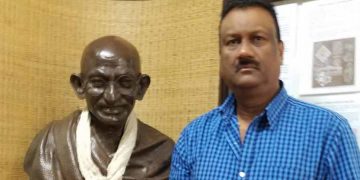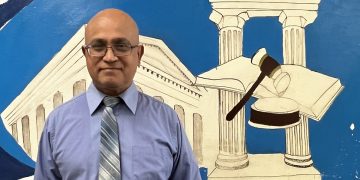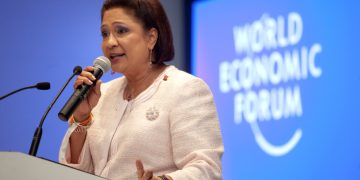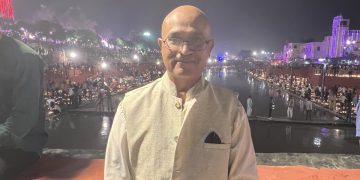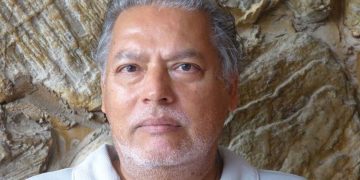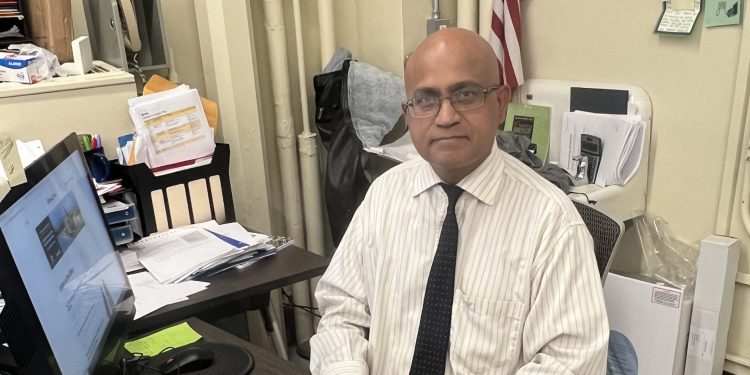As reported in the international media, Caricom nation Grenada and the Grenadines held elections on Thursday June 23. Note the contrasts with Guyana in the counting of ballots and the acceptance of results by political parties.
The Grenada election results were known Thursday evening self – no anxiety and tensions. Bot sides accepted the results as in previous elections post 1979 Grenada revolution.
The incumbent NNP lost to the NDC (that had no representation in parliament in last two election cycles. The defeated incumbent PM Dr. Keith Mitchell accepted defeat (9-6) and walked away nursing political wounds to become the official opposition and to plan a comeback in five years. This is quite unlike in Guyana on March 2 2020 when the ruling PNC led coalition refused to accept the will of the electorate or in Dec, 2018 when it refused to accept the defeat in the no confidence motion. It invoked various unprecedented rules and came up with all kinds of shenanigans unheard of anywhere else on the planet. When the PNC led coalition was declared as winner in May 2015, PPP peacefully accepted the outcome.
Political parties in Guyana, the PNC in particular, must learn to accept the outcome of free and fair elections and voice of voters. It should consider emulating the behavior of the PPP and other parties that gracefully accepted defeat. Engaging in violence and bullying voters will not help it. Politics is not just about winning elections and holding power or using violence or extra constitutional means to retain power. Politics is also about serving the people who elect you as well as the public at large. The leaders or those in government must not only use the power for self-interests but to serve the people firstly.
The outcomes of elections in Guyana in 2015 and 2020 and in Grenada in 2022 show that the voters are bosses – they revealed who decide government formation. The voters had the final verdict. The coalition leadership felt that they were smarter and know more than their supporters (not servicing the population) and paid the price in 2020 at the ballot boxes.
When a party loses an election, the leadership rebuilds as Mitchell did in 2010 to 2013 and as Jagdeo did from 2016 to 2020. You don’t go on the warpath encouraging violence and attacking people on account of their race. Victimizing people when you are in government and attacking voters when in opposition don’t bring you support; those acts turn away voters.
Unlike the coalition, the ruling PPP demonstrated political astuteness. During its tenure from 1992 to 2015, it did not terminate workers although some errors were made post 2011. It embraced all races. Since August 2020, it has put in place a government that is reflective of the ethnic diversity of the country – comprises of members of varied ethnicities in the country. This is a remarkable testimony to the deepening of ethnic inclusiveness and democracy by a PPP led administration. It has not terminated workers on account of ethnicity. It has created employment for thousands of all ethnicities. It has given out varied grants for poorer sections of society to start businesses. There are housing grants and varied forms of social assistance to the poor including a Covid grant of $25K and increases in pension as well as educational grants. The party has provided substantial assistance to marginalized indigenous communities. This signifies the party’s sustained efforts to incorporate native communities economically, politically and culturally.
The President’s personal involvement in visiting outlying communities is unmistakable and is in line with the government’s relentless efforts to expand the PPP’s base. The President also gave out a grant of $150K to the fisher folks. The Vice President has been visiting all the regions over the last couple months doling out grants to help communities and workers affected by a slow down and rising cost of living.
The important point is the PPP, unlike its predecessor, is inclusive and reaching out to all communities. There is no discrimination on account of race or political affiliation. And most importantly, the ruling party has consistently accepted the outcome of democratic elections — a tradition in Caricom — but not one embraced by the PNC.
















